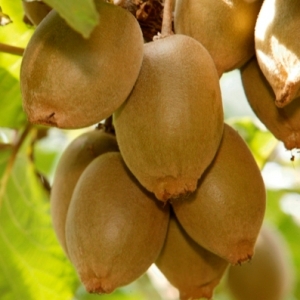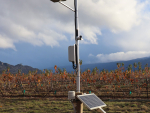THE KIWIFRUIT industry is the first to sign a biosecurity partnership with the government under the Government Industry Agreements (GIA).
The deed commits Kiwifruit Vine Health (KVH) and MPI to working together on preparing for priority pest and disease threats and on managing them if an incursion occurs.
MPI director general Martyn Dunne says KVH is the first primary sector group to formalise the significant benefits of working in partnership with Government.
"KVH has taken the leadership role in biosecurity for the kiwifruit sector recovering from the impacts of Psa. Signing the deed is another demonstration that they understand the importance of biosecurity to kiwifruit growers, packers and exporters. From here forward, we will be able to maximise our collective capability to more effectively manage biosecurity risks," Dunne says.
"MPI is committed to making GIA work. From now on, we are at the table together on biosecurity. GIA will enable us to jointly prioritise and plan for the pests and diseases of most concern, and should an incursion occur, we will work together on effectively managing the situation."
Dunne says the GIA will give primary production industries a direct say in managing biosecurity risk. It enables joint decision making and also co-investment in preparedness and response activities which means that everyone is working together on the most important priorities, he says.
"I expect that KVH will be the first of several industry organisations to sign the GIA Deed. Biosecurity is a shared responsibility, and we need everyone to be on board.
"I'm pleased that KVH has committed its time, expertise, and resources to be the first cab off the rank. The kiwifruit industry has had a key role in the development of the GIA Deed with representation on the joint working group that drafted the documentation.
"It is also actively involved in the development of an operational agreement for a fruit fly readiness and response programme of work. Operational agreements outline plans for managing specific pests or diseases and improving biosecurity outcomes," Dunne says.
"Joint decision making will give industry and government confidence that the best decisions are being made about managing biosecurity risk."



















